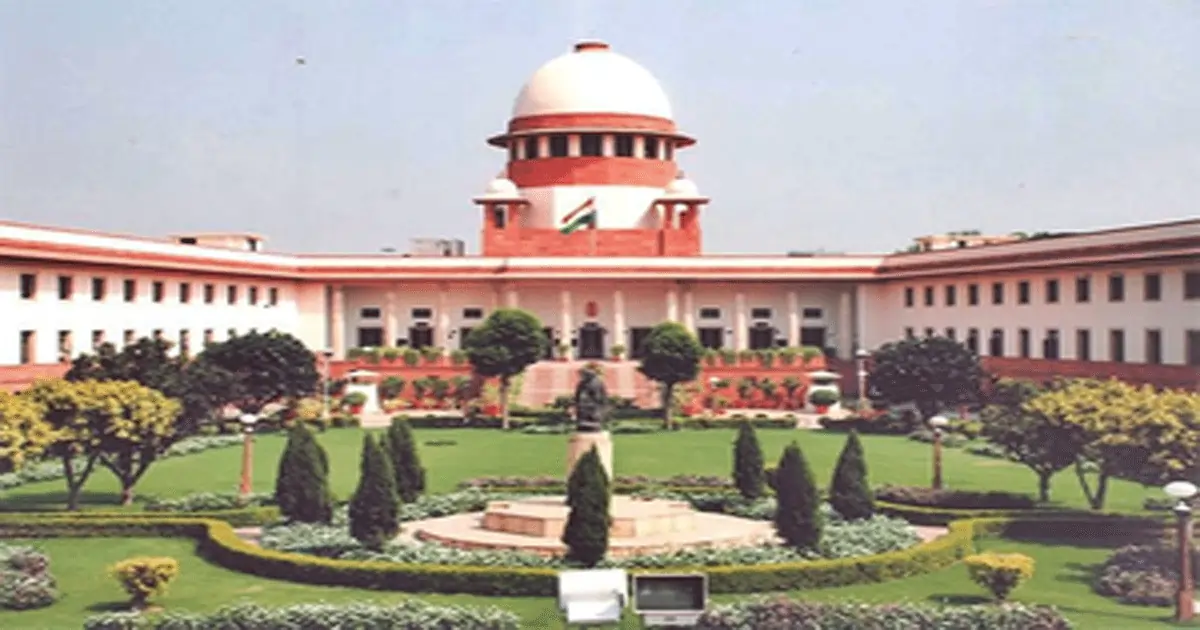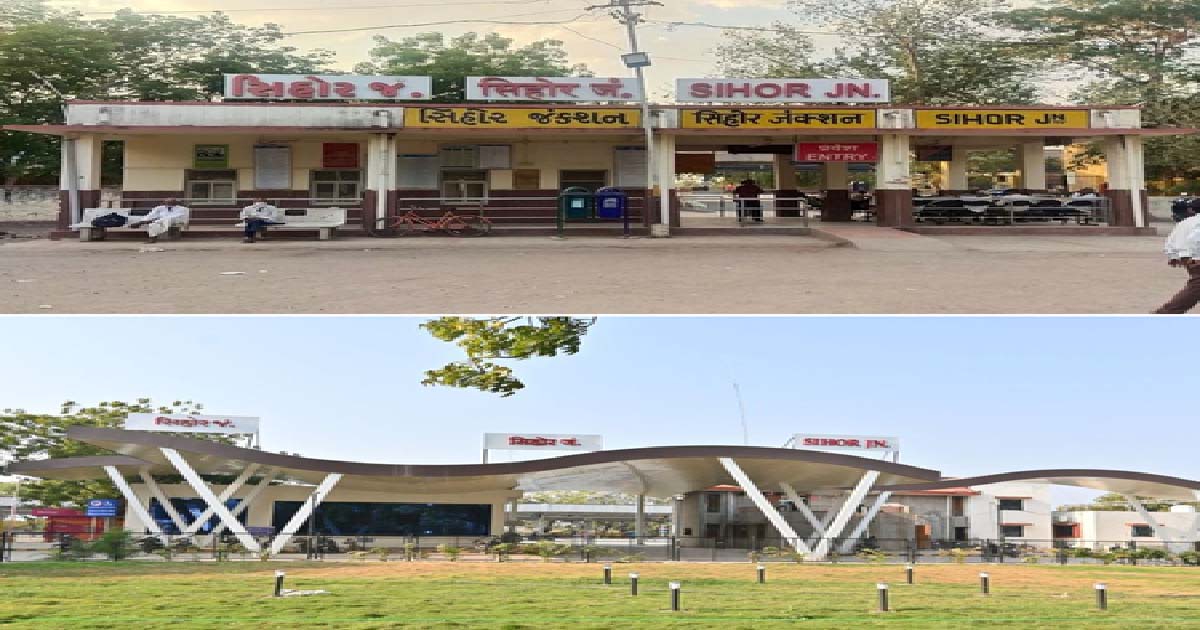National News
SC fixes April 16 for hearing on pleas against law dropping CJI from EC appointment panel

New Delhi, Mar 19: The Supreme Court on Wednesday fixed April 16 for hearing on a clutch of petitions challenging the law passed by the Parliament, which excludes the Chief Justice of India (CJI) from the process of appointment of top officials of the Election Commission.
A bench of Justices Surya Kant and N. Kotiswar Singh decided to defer the hearing for four weeks after advocate Prashant Bhushan, appearing on behalf of the Association for Democratic Reforms, an NGO, mentioned that the matter is listed at serial number 38 and is not likely to reach for hearing during the course of the day.
The Justice Kant-led Bench added that it would ensure that not many urgent cases are listed on the fixed date and the pleas challenging the validity of the Chief Election Commissioner and the other Election Commissioners (Appointment, Condition of Service and Term of Office) Act, 2023 are listed high on board on April 16.
In March 2023, a Constitution Bench of the Supreme Court had held that the appointment of top officials of the Election Commission shall be done by the President on the advice of a panel comprising the Prime Minister, the Leader of the Opposition (LoP) in the Lok Sabha, and the Chief Justice of India (CJI).
“We declare that the appointment of the CEC and the other ECs shall be made on the recommendations made by a three-member Committee comprising the Prime Minister, LoP of the Lok Sabha and in case no LoP is available, the leader of the largest opposition party in the Lok Sabha in terms of numerical strength and the Chief Justice of India,” said the apex court, clarifying that its guidelines shall be in effect until Parliament makes a law in consonance with Article 324(2) of the Constitution.
After the apex court verdict, the Parliament introduced legislation providing that the Chief Election Commissioner (CEC) and the other Election Commissioners (ECs) will be appointed by the President on the recommendation of a Selection Committee consisting of the PM, the Leader of the Opposition (or the largest opposition party) in the Lok Sabha, and a Union Cabinet Minister to be nominated by the PM.
Several PILs were filed before the Supreme Court challenging the constitutional validity of the Chief Election Commissioner and the other Election Commissioners (Appointment, Condition of Service and Term of Office) Act, 2023.
One of the pleas filed by a Noida-based lawyer sought directions to set aside the gazette notification issued by the Union government on December 28, 2023, and to include the Chief Justice of India in the selection committee for the appointment of the CEC and ECs. Further, it sought direction to the Union of India for implementing an independent and transparent system of selection constituting a neutral and independent selection committee for appointment of the CEC and other ECs.
On February 19, the hearing was adjourned by the Justice Kant-led Bench after Solicitor General Tushar Mehta requested to defer the proceedings as he was on his legs before the Constitution Bench dealing with the question of whether courts can modify arbitral awards under the provisions of the Arbitration and Conciliation Act, 1996.
Business
IndiGo Crisis: 75-Yr-Old Woman Waits Hours For Luggage Without Medicines At Mumbai T2 Airport

Mumbai, Dec 05: When IndiGo’s nationwide operational meltdown began disrupting flights earlier this week, thousands of passengers were caught in chaos across the country. Among them was a 75-year-old woman whose ordeal at Mumbai’s Terminal 2 gained attention after her daughter shared a distressed post on X. Thankfully, the woman has now reached home safely, but her experience reflects the scale of frustration travellers are facing.
In her post on X, Punita Toraskar wrote that her elderly mother had been waiting at T2 since noon, and even by 4:42 pm, she still hadn’t received her luggage. The situation was more alarming because the 75-year-old needed to take her medicines but was stuck waiting on an empty stomach, stranded amid the airport chaos.
Toraskar’s post quickly resonated with passengers across India who have been struggling with severe delays, cancellations, and a complete breakdown of communication from India’s largest airline.
IndiGo is currently grappling with one of the biggest operational crises in its history. Nearly 900 flights have been cancelled since Tuesday, triggered by a mix of staff shortages and the airline’s struggle to adapt to stringent new crew duty regulations.
Passengers at major airports — Delhi, Hyderabad, Bengaluru, and Kolkata — are facing hours-long queues, mounting delays, and skyrocketing airfares as alternative flight options shrink. Hotels are filling up, tempers are rising, and social media is flooded with frustration.
IndiGo has issued public apologies and claims it is rebooting its systems and schedules to stabilise operations. But for many travellers like Toraskar’s mother, the damage is already done.
Despite the turmoil, Punita confirmed later that her mother had finally reached home safely, a small relief in a week of aviation chaos.
Mumbai Press Exclusive News
Nigerian arrested with cocaine in Mumbai

Mumbai: Police has claimed to have arrested a Nigerian with cocaine in the limits of Maloney police station and 180 grams of cocaine have been seized from his possession. Police searched Manuchi Agwa alias Oliver Agwa, 27, during a patrol and recovered cocaine from his possession. Along with the cocaine, a total of Rs 72 lakhs has been seized from the possession of the Nigerian. The police have registered a case under the NDPS Act and started investigation.
Business
Rs 7,253 crore spent so far in 2025-26 on sprucing up railway stations in India: Vaishnaw

New Delhi, Dec 5: The government has spent Rs 7,253 crore so far (up to October), of the total budgetary allocation of Rs 12,118 crore for 2025–26, on the redevelopment of railway stations across the country under the Amrit Bharat Station Scheme, Railway Minister Ashwini Vaishnaw informed Parliament on Friday.
The minister stated in a written reply to a question in the Rajya Sabha that work is in progress at a good pace for the development of stations such as Tirupati, Yesvantpur, Rameswaram, and Safdarjung station in Delhi..
So far, 1,337 stations have been identified for development under this scheme since it was launched, of which 155 stations have been completed till now.
Vaishnaw said that the station development projects under the Amrit Bharat Station Scheme are primarily conceptualised with budgetary support. However, 15 stations have been identified to be explored for development under the Public Private Partnership (PPP) mode also and based on the experience gained from the same, further evolution of the scheme is envisaged.
He further stated that the ownership of stations and operations-related activity will be with the Indian Railways. However, for some identified major stations, specific activities or groups of activities may be entrusted to outside sources for specified tenures depending upon the type of activity, requirements of the station, demand, etc. The terms of the contract are decided on a case-by-case basis.
He said that the Amrit Bharat Station Scheme for the redevelopment of stations has been launched with a long-term approach.
The scheme involves the preparation of master plans and their implementation in phases to improve the stations. The master planning includes improvement of access to the station and circulating areas, integration of the station with both sides of the city, improvement of the station building and improvement of waiting halls, toilets, sitting arrangement, and water booths.
The redevelopment plans also include provision of wider foot over bridge or air concourse commensurate with passenger traffic, provision of lifts, escalators and ramps, improvement of platform surface and cover over platforms and provision of kiosks for local products through schemes like ‘One Station One Product’.
Besides, the construction of parking areas, multimodal integration, amenities for Divyangjans, better passenger information systems, provision of executive lounges, nominated spaces for business meetings and landscaping is being taken up, keeping in view the necessity at each station, Vaishnaw said.
The scheme also envisages sustainable and environment-friendly solutions, provision of ballastless tracks, etc., as per necessity, phasing and feasibility and creation of a city centre at the station in the long term, the minister added.
-

 Crime3 years ago
Crime3 years agoClass 10 student jumps to death in Jaipur
-

 Maharashtra1 year ago
Maharashtra1 year agoMumbai Local Train Update: Central Railway’s New Timetable Comes Into Effect; Check Full List Of Revised Timings & Stations
-

 Maharashtra1 year ago
Maharashtra1 year agoMumbai To Go Toll-Free Tonight! Maharashtra Govt Announces Complete Toll Waiver For Light Motor Vehicles At All 5 Entry Points Of City
-

 Maharashtra1 year ago
Maharashtra1 year agoFalse photo of Imtiaz Jaleel’s rally, exposing the fooling conspiracy
-

 National News1 year ago
National News1 year agoMinistry of Railways rolls out Special Drive 4.0 with focus on digitisation, cleanliness, inclusiveness and grievance redressal
-

 Maharashtra1 year ago
Maharashtra1 year agoMaharashtra Elections 2024: Mumbai Metro & BEST Services Extended Till Midnight On Voting Day
-

 National News1 year ago
National News1 year agoJ&K: 4 Jawans Killed, 28 Injured After Bus Carrying BSF Personnel For Poll Duty Falls Into Gorge In Budgam; Terrifying Visuals Surface
-

 Crime1 year ago
Crime1 year agoBaba Siddique Murder: Mumbai Police Unable To Get Lawrence Bishnoi Custody Due To Home Ministry Order, Says Report












